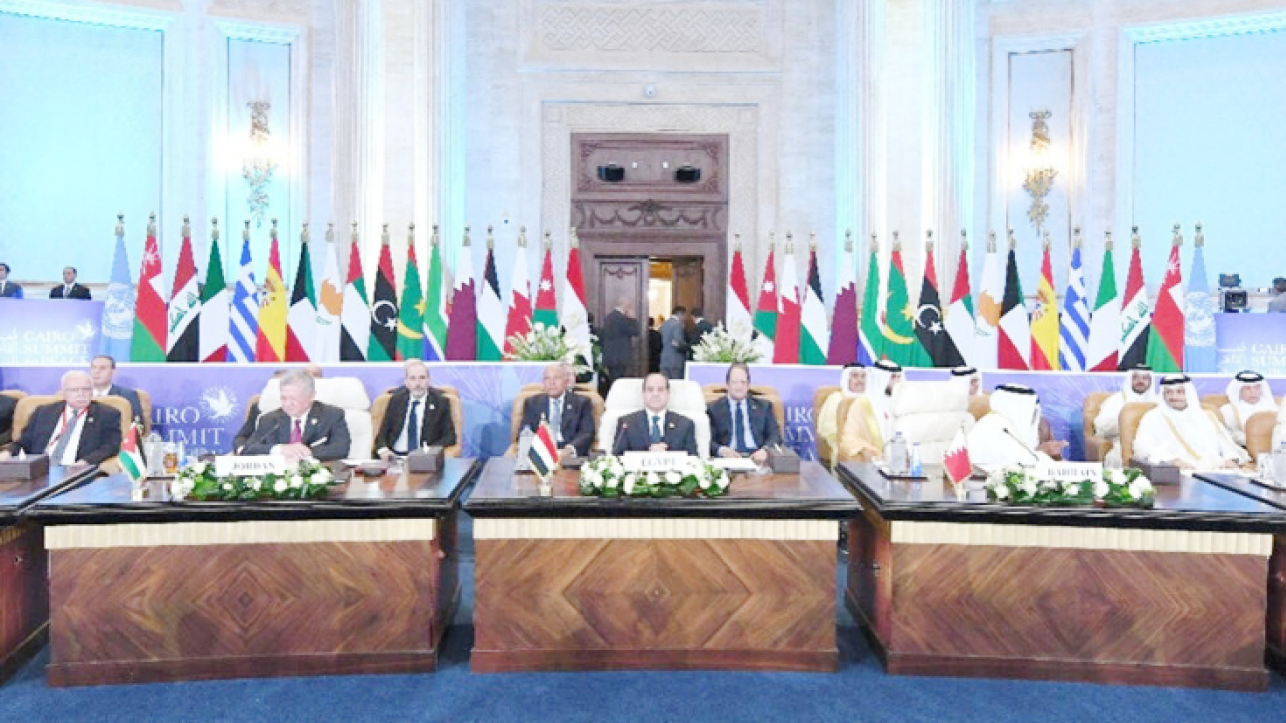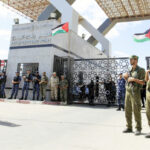Now that Israel is at war with Gaza, one could be forgiven for thinking that the Russia-Ukraine war, the Sudan conflict, the conflict in Democratic Republic of Congo and elsewhere have all ceased as the attention of the global community is focused on the Middle East.
The October 7 attack on Israel by Hamas almost coincided with an earthquake in the northwest of the city of Herat in Afghanistan. Not even the death of more than 1,400 people could make the global media beam its searchlight on the victims of such devastation.
The 3.6 magnitude earthquake, described as the world’s deadliest this year after tremors in Turkey and Syria killed an estimated 50,000 in February, left 9,240 people injured and 1,320 houses damaged or destroyed, but not many realized what happened.
A month earlier, a similar disaster in Morocco claimed the lives of 2,946 people and injured 5,674, making it the country’s deadliest since 1960 and the most powerful since 1900.
The royal palace, in a statement revealed that 50,000 houses were known to have been damaged by the earthquake, but face the war on Gaza, not much has been heard on the recovery efforts in the region.
Few days after the Morocco earthquake, Libya witnessed two dam collapses in Derna, which ended the lives of an estimated 20,000 people. The 30million cubic metres (39 million cubic yards) of water from the dams flooded and destroyed the entire city of Derna, but now that Israel is at war with Gaza, the world has moved on.
It is unclear how the country with separate leadership in Misrata and Tripoli is rebuilding and recovering.
With the global lenses fixated on the Israel-Palestine war, the world seems to have forgotten the Russia-Ukraine war, Sudan war, Democratic Republic of Congo, and the wave of coups in parts of the African continent. But what do we know so far?

Counting the cost of Russia-Ukraine war
It has been 620 days since the Russia-Ukraine war began, and losses have been incurred on both sides, including civilian casualties, destruction of infrastructure, and critical facilities.
While both sides continue to churn out unverifiable numbers of those killed, information remains a major tool for propaganda in warfare as both sides aim to portray strength and exploit.
As the controversy over the number of casualties continues, there’s a seeming information blackout on civilian casualty on both sides.
In the latest figures released by the Ukrainian military, Russia was reported to have lost over 300,000 soldiers since the war began.
Similarly, in August 2023, the New York Times quoted an anonymous US official as saying that “the number of Ukrainian and Russian troops killed or wounded since the war in Ukraine began nearing 500,000.
The report also revealed that Russia’s military casualties were approaching 300,000, including as many as 120,000 deaths and an estimated 180,000 injuries. Ukrainian deaths were close to 70,000, with about 120,000 wounded. But these figures remain unverifiable.
However, the Office of the United Nations High Commissioner for Human Rights (OHCHR), verified that a total of 9,614 civilian deaths had been recorded during Russia’s invasion of Ukraine as at September 2023.
The OHCHR also disclosed that 17,535 people were reported to have been injured, although the commission specified that the real numbers could be higher.
In addition, the World Health Organisation has verified over 1,300 attacks on health care – more than 55 per cent of all attacks worldwide during the same period.
One hundred and eleven health care workers and patients have been killed, with 13 health facilities impacted by attacks since the beginning of September, the UN also revealed.
Ramesh Rajasingham, the director of coordination for the UN’s humanitarian office, told the UN Security Council that some 18million people – 40 per cent of Ukraine’s population – needed some form of humanitarian assistance, a situation that could get more complicated as winter approaches with many in need of water and heating systems.
The UN had requested $3.9billion to support humanitarian needs in Ukraine this year but is facing a funding shortfall of about $1.9bn.
Meanwhile, the US defence secretary, Lloyd Austin, has said that Russia would be successful in Ukraine if US support for Kyiv does not continue.
Lloyd’s statement is against the backdrop of President Joe Biden’s request to Congress for $106bn for military and humanitarian aid for Israel and Ukraine and humanitarian assistance for Gaza, insisting that lawmakers had an obligation to support US allies standing up to tyranny and aggression worldwide.
The request, which allocates $61.4bn for Ukraine, incorporating replenishment of US weapons stocks, $14.3bn for Israel and $9.15bn for unspecified humanitarian assistance in both countries, is being considered by the US Congress for approval.
As Ukraine battles to retake control of the Eastern Donbas region under Russia’s control, there’s no end in sight for the Russia-Ukraine war, which means more cost for both sides in the conflict.
What is happening in Sudan?
It is more than 200 days of fighting in Sudan, a war many thought would not last this long given the country’s long history of conflict. Sadly, a conflict that started like a clash of ego between two generals has engulfed the major regions of the country and not even the UN, AU or the mediators from Saudi Arabia or America are able to put out the fire yet.
The war, which started after a move by the commander of the armed forces, Abdel Fattah al-Burhan, to collapse the structure of the Rapid Support Forces under Mohamed Hamdan Dagalo, into the armed forces ahead of the country’s transition to civilian rule, has claimed more than 9,000 civilian lives, forcing an estimated five million to flee their homes.
The UN Under-Secretary-General for Humanitarian Affairs, Martin Griffiths briefing journalists recently said, “The number of people who need humanitarian assistance in Sudan has increased from an estimated 15.8million in November of last year to 24.7million people in May, representing a 57 per cent increase.
Of the $2.6bn needed to help those in need this year, only 33 per cent of the amount has been received, the UN reveals.
At least 45 aid workers are also reported to have been killed or detained since 15 April and more than 70 per cent of health care facilities in conflict areas are out of service.
Amidst this crisis, not less than 1,000 suspected cases of cholera have been reported in Gedaref, Khartoum, and Kordofan states of Sudan.
While Sudan witnesses the largest internal displacement crisis in the world, suspended peace talks between the armed forces and the Rapid Support Forces (RSF) have resumed in Jedda with Saudi Arabia and US as mediators.
Previous peace talks broke down in late June after US and Saudi Arabia accused both sides of failing to abide by the ceasefire deals they had agreed to. At least 9 temporary ceasefire deals have been violated since the peace talks began.
The lead mediators are confident this time that both sides would adhere to agreements after the armed forces and RSF express readiness for a peace deal.
DRC heads to polls amid renewed conflict
The humanitarian crisis in the Democratic Republic of Congo continues to escalate as the International Organisation for Migration (IOM) reveals that the number of displaced people in the country reached a record high of 6.9million following a renewed conflict between Tutsi-led M23 rebels and militias loyal to the government in the eastern province of North Kivu in October.
In the face of the lingering conflict, DRC is preparing for a presidential election in early December, with names of 24 presidential candidates published in the electoral umpire’s provisional list, including the incumbent president, who is seeking re-election for another five-year term.
Nearly 200,000 people have fled their homes since the resumption of the fighting in Rutshuru and Masisi regions, north of Goma, according to UN humanitarian agency, OCHA.
As it strives to manage 78 camps housing some 280,000 displaced people, IOM said it only received less than half of the $100million requested for humanitarian needs.
The conflict in DRC, which spans over three decades, has seen the United Nations deploy a peace keeping mission since 1999, gulping an annual budget of one billion dollars, described as the largest spending on peacekeeping in the world, yet with little success in fostering peace.
Addressing the 78 UN General Assembly, DRC’s President Felix Tshisekedi called for the withdrawal of the UN peacekeeping mission, saying the over two decades of operation “have failed to cope with the rebellions and armed conflicts.
“The world is headed in a most undesirable direction. It is moments like this that the affirmative spirit of multilateralism, international collective action and global solidarity is most needed and should be attainable,” Kenyan President William Ruto
As many analysts have observed, though the Israel-Palestine war threatens the peace of an entire region, it is not an isolated case as some of the underlying causes are also factors that manifest in other regions.
The United Nation has a responsibility not to leave anyone behind by upholding international law and addressing the root causes of conflicts in the interest of global peace.

 Join Daily Trust WhatsApp Community For Quick Access To News and Happenings Around You.
Join Daily Trust WhatsApp Community For Quick Access To News and Happenings Around You.


